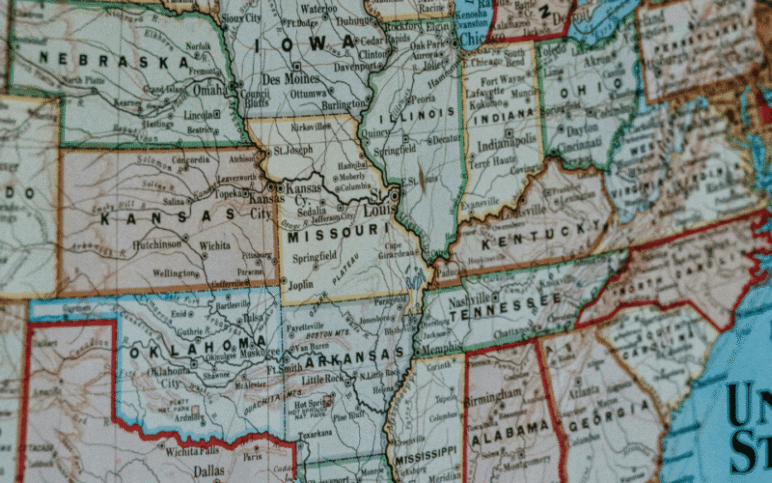Toppe Consulting – Your Source for Digital News & Trends in the Legal Industry
LEGAL NOTICE: This article discusses a pending civil lawsuit and a completed ruling on a motion for temporary injunction. The underlying case (Crook v. SC Election Commission) remains in litigation. This article provides educational information about public court proceedings and does not constitute legal advice.
The Ruling That Affects 3.3 Million South Carolinians
On October 1, 2025, Circuit Judge Daniel Coble issued a ruling that will impact every registered voter in South Carolina. In a 12-page decision, Judge Coble denied a motion for temporary injunction that sought to block the South Carolina Election Commission from sharing sensitive voter data with the U.S. Department of Justice—despite what he described as “grave concerns about federal overreach and encroachment over this State’s sovereignty.”
The case, brought by retired Calhoun County educator Anne Crook, raises fundamental questions about privacy rights, state sovereignty, and the balance of power between federal and state governments. While Judge Coble’s ruling denied the temporary injunction, the underlying lawsuit remains pending and continues to challenge the data transfer. For attorneys practicing in South Carolina, this ongoing legal battle presents important implications across multiple practice areas—from constitutional law to administrative procedure.
What’s at Stake: The Data in Question
In August 2025, the U.S. Department of Justice requested South Carolina’s complete voter registration list as part of a nationwide push by the Trump administration to obtain voter rolls from all 50 states. The requested information includes:
- Full names
- Home addresses
- Dates of birth
- Driver’s license numbers
- Last four digits of Social Security numbers
This isn’t just public information. While some voter data (like names and addresses) is already publicly available for purchase by registered voters, the inclusion of driver’s license numbers and partial Social Security numbers raises significant privacy concerns.
The request affects all 3.3 million registered voters in South Carolina.
The Legal Arguments: Privacy vs. Federal Authority
Plaintiff’s Position
Anne Crook, represented by Senate Minority Leader Brad Hutto, argued that sharing her personal voter information would violate her constitutional right to privacy under the South Carolina Constitution. Specifically, Article 1, Section 10 of the state constitution guarantees:
“The right of the people to be secure in their persons, houses, papers, and effects against unreasonable searches and seizures and unreasonable invasions of privacy shall not be violated…”
Crook’s legal team also pointed to South Carolina statutes that restrict disclosure of certain voter information and federal government’s poor track record in protecting sensitive data—including a recent whistleblower claim that the Department of Government Efficiency put millions of Social Security numbers at risk of hacking.
The motion sought a temporary injunction to block any data transfer until a Memorandum of Understanding (MOU) with specific security safeguards was finalized and made public.
The State’s Position
The South Carolina Election Commission, with support from Governor Henry McMaster, argued that:
- State law (S.C. Code) gives the commission authority to enter data sharing agreements for voter registration data
- Federal law—specifically the Help America Vote Act and National Voter Registration Act—likely requires states to provide requested information to federal authorities
- Most of the requested information is already publicly available
- The commission has successfully entered similar agreements with other states without incident
- The commission has committed not to release any data without a signed MOU with security safeguards
Judge Coble’s Reasoning
Despite his stated concerns about federal overreach, Judge Coble denied the temporary injunction based on four key findings:
1. No Irreparable Harm
Crook failed to prove she would suffer irreparable harm because Election Commission officials testified they would not release data “point-blank” without a Memorandum of Understanding that includes privacy protections.
2. Existing Legal Remedies
If voter data is misused, existing laws provide remedies for individuals to seek recourse.
3. Federal Preemption
“Federal law likely preempts state law in this area,” Judge Coble wrote. “The State at this point has interpreted the law as requiring compliance.”
4. Unlikely to Succeed on Merits
The judge determined that Crook’s constitutional privacy claim was unlikely to succeed because “the ‘right to privacy’ constitutional provision does not encompass the sharing of data between the State and the federal government to secure federal elections.”
The Broader Context: A Nationwide Battle
South Carolina isn’t alone in facing this request. The Trump administration has sought voter rolls from all 50 states, raising concerns nationwide about:
- Data security: How will this information be stored and protected?
- Purpose: What will the federal government do with this data?
- Precedent: Does this set a dangerous precedent for future federal data requests?
- State autonomy: Where is the line between federal authority and state sovereignty?
The case highlights a fundamental tension in American federalism: when does legitimate federal oversight cross into overreach that threatens state autonomy and individual privacy?
What Happens Next
Judge Coble’s ruling doesn’t mean voter data will be transferred immediately. According to Acting Election Commission Director Jennifer Wooten, the agency is still negotiating a Memorandum of Understanding with the DOJ that will include:
- Security safeguards for data protection
- Specifications for how data will be transmitted
- Limitations on data use
- Requirements for data destruction after use
The commission has committed to making any decision about data sharing only through a public vote with at least 24 hours’ advance notice.
Anne Crook’s underlying lawsuit remains pending, meaning this legal battle isn’t over.
Practice Area Implications
Constitutional Law
This case raises critical questions about the scope of state constitutional privacy protections versus federal statutory requirements. Attorneys specializing in constitutional law should monitor this case closely, as it may set precedent for future federal-state conflicts over data sharing.
Election Law
The ruling clarifies that federal election security laws likely require state compliance with DOJ data requests, even when state officials have concerns. Election law specialists need to understand both the Help America Vote Act and National Voter Registration Act requirements.
Privacy Law
The decision narrows the scope of South Carolina’s constitutional privacy protections when it comes to government-to-government data sharing. Privacy law practitioners should note that Judge Coble distinguished between private sector data breaches and inter-governmental information sharing.
Administrative Law
The commission’s commitment to public voting and advance notice demonstrates proper administrative procedure. The case provides guidance on how state agencies should handle controversial federal requests while maintaining transparency.
Government Affairs & Lobbying
For attorneys working in government affairs and regulatory practice, this case illustrates the complex interplay between federal mandates and state sovereignty—a tension that frequently requires skilled legal navigation and strategic advocacy.
What Attorneys Should Know
1. Federal Law Often Preempts State Law
Even when state constitutional protections exist, federal statutory requirements frequently take precedence. Attorneys advising clients on data privacy issues must analyze both state and federal law to determine which controls.
2. “Grave Concerns” Don’t Always Change Outcomes
Judge Coble openly acknowledged concerns about federal overreach but still ruled based on legal precedent and statutory interpretation. This demonstrates that policy concerns—no matter how legitimate—may not overcome clear statutory authority.
3. Procedural Safeguards Matter
The Election Commission’s commitment to a Memorandum of Understanding before releasing data was crucial to the ruling. Attorneys should advise government agency clients to document procedural safeguards when handling sensitive data requests.
4. Public Transparency Is Critical
The commission’s promise to vote publicly with advance notice demonstrates best practices for government transparency. This approach can help agencies build public trust even when making controversial decisions.
5. The Case Isn’t Over
The underlying lawsuit remains pending. Attorneys should continue monitoring this case for additional legal developments that may further clarify the boundaries between federal authority and state sovereignty.
Managing Public Perception
For law firms handling controversial constitutional cases or government affairs matters, managing public perception is crucial. When legal decisions affect millions of constituents, online reputation management becomes essential for maintaining client confidence and community trust.
Attorneys working on high-profile constitutional matters should also consider establishing thought leadership through legal commentary to position themselves as trusted authorities on these critical issues.
Communicating with Clients
With 3.3 million South Carolinians potentially affected by this decision, attorneys should proactively communicate with clients about privacy implications. Consider including updates on this case in your firm’s email newsletters to demonstrate your awareness of important legal developments affecting your community.
For practices handling sensitive data, this case underscores the importance of SSL certificate implementation and website security to protect client information—a responsibility that becomes even more critical as government data-sharing practices evolve.
The Bottom Line
Judge Coble’s October 1 ruling reflects a legal reality that many find uncomfortable: legitimate concerns about federal overreach and data privacy may not be sufficient to overcome federal statutory authority. While the judge acknowledged “grave concerns about federal overreach and encroachment over this State’s sovereignty,” he ultimately concluded that federal law requires compliance.
For South Carolina’s 3.3 million registered voters, the protection of their personal information now depends on:
- The strength of the Memorandum of Understanding being negotiated
- The federal government’s commitment to data security
- The outcome of the ongoing lawsuit
- Potential legislative action to strengthen state privacy protections
For attorneys, this case serves as a reminder that federalism issues remain very much alive in American law—and that the tension between federal power and state sovereignty continues to shape legal outcomes in ways that directly affect our clients and communities.
As this case develops, attorneys should remain vigilant about both the immediate implications for voter privacy and the broader precedent being set for future federal-state conflicts over sensitive data.
About the Author
Jim Toppe is the founder of Toppe Consulting, a digital marketing agency specializing in law firms. He holds a Master of Science in Management from Clemson University and teaches Business Law at Greenville Technical College. Jim also serves as publisher and editor for South Carolina Manufacturing, a digital magazine. His unique background combines legal knowledge with digital marketing expertise to help attorneys grow their practices through compliant, results-driven strategies.
About This Article
This legal analysis was prepared by Toppe Consulting, a digital marketing firm specializing in helping South Carolina law firms establish authoritative online presences and communicate complex legal issues to their communities. We help attorneys leverage current legal developments to demonstrate expertise and connect with clients who need their services.
If your firm handles constitutional law, election law, privacy matters, or government affairs, ensuring your online presence reflects this expertise is critical. We can help you communicate your knowledge effectively through strategic content marketing and digital positioning.
Toppe Consulting
Digital Marketing for Legal Professionals
jim@toppeconsulting.com | toppeconsulting.com
(Based in Salem, SC—Serving South Carolina)
Works Cited
“Circuit Court Judge Sides with SC in Case Over Voter Data Release to DOJ.” Yahoo News, 1 Oct. 2025, www.yahoo.com/news/articles/circuit-court-judge-sides-sc-223112144.html. Accessed 8 Oct. 2025.
“Judge Denies Challenge to SC Voter Data Opening Release to Justice Dept.” The Post and Courier, 1 Oct. 2025, www.postandcourier.com/politics/judge-denies-release-sc-voter-data/article_1a5de260-2eb9-49fe-a7cd-157a5d001317.html. Accessed 8 Oct. 2025.
“Judge Rejects Request to Block SC’s Voter Data from Going to Feds.” South Carolina Public Radio, 1 Oct. 2025, www.southcarolinapublicradio.org/sc-news/2025-10-01/judge-rejects-request-to-block-scs-voter-data-from-going-to-feds. Accessed 8 Oct. 2025.
“Judge Refuses to Block Voter Data Transfer, Noting Election Agency’s Promise to Sign Agreement First.” SC Daily Gazette, 1 Oct. 2025, scdailygazette.com/briefs/judge-refuses-to-block-voter-data-transfer-noting-election-agencys-promise-to-sign-agreement-first/. Accessed 8 Oct. 2025.
“Judge Rules SC Can Continue Handing Over Voter Data to Federal Government.” WIS News 10, 1 Oct. 2025, www.wistv.com/2025/10/01/judge-rules-sc-can-continue-handing-over-voter-data-federal-government/. Accessed 8 Oct. 2025.
“Judge Temporarily Blocks Release of SC Voter Data to Trump Administration.” SC Daily Gazette, 4 Sept. 2025, scdailygazette.com/2025/09/03/judge-temporarily-blocks-release-of-sc-voter-data-to-trump-administration/. Accessed 8 Oct. 2025.
“S.C. Judge Denies Block in Transfer of Statewide Voter Data.” NY1 News, 2 Oct. 2025, ny1.com/nyc/all-boroughs/news/2025/10/02/south-carolina-voter-data. Accessed 8 Oct. 2025.
“South Carolina Judge Denies Request to Block Voter Data Sharing with DOJ.” WLTX, www.wltx.com/article/news/local/judge-denies-request-south-carolina-voter-data-sharing-doj/101-e73ac779-026d-4cc1-a505-22469d4f5cd3. Accessed 8 Oct. 2025.




